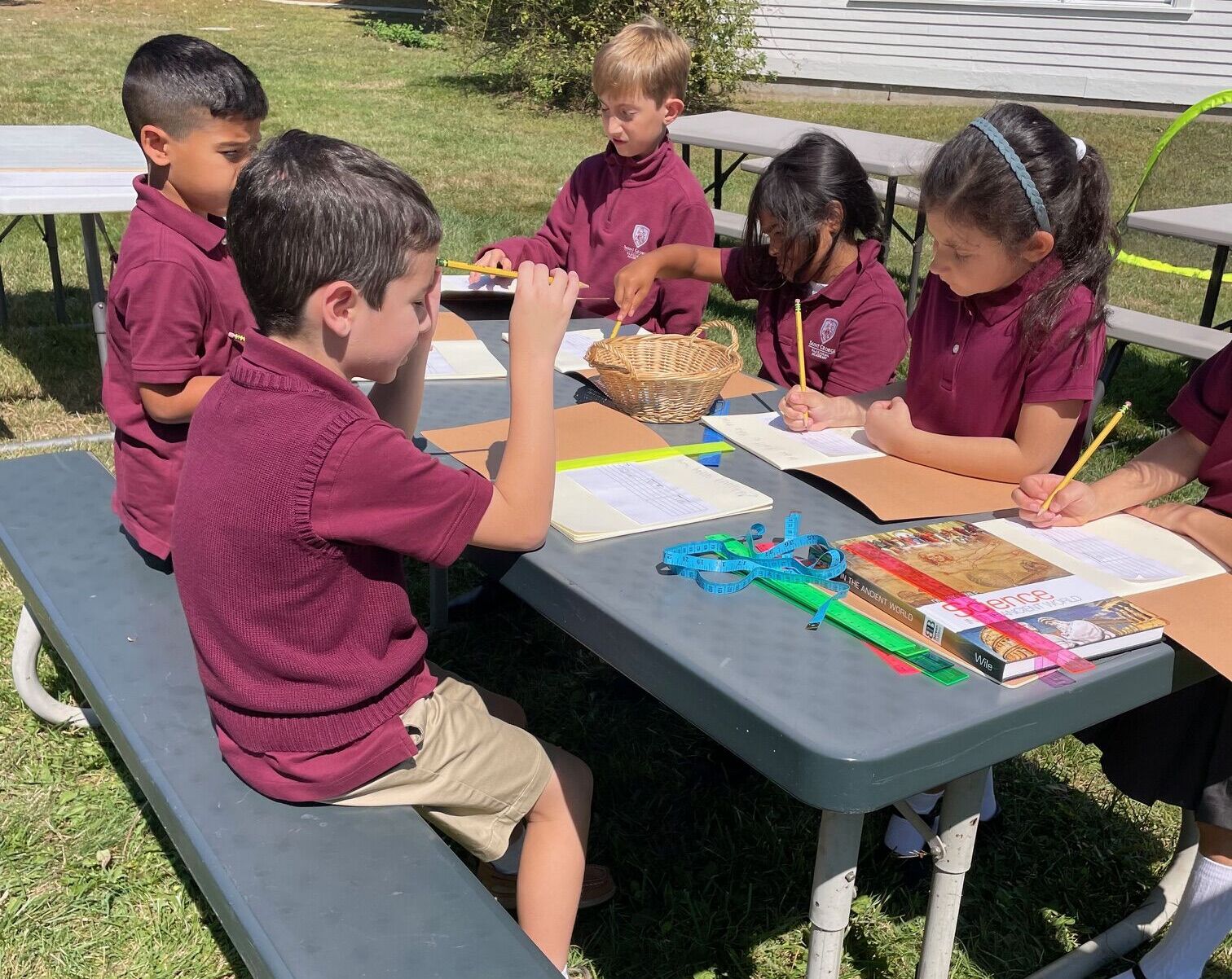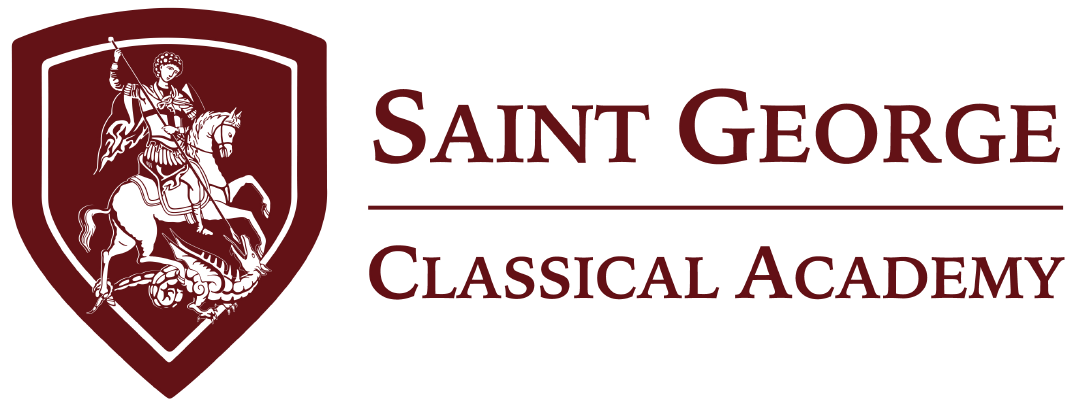Curriculum Overview
“Whatever is true, whatever is noble, whatever is right, whatever is pure, whatever is lovely, whatever is admirable—if anything is excellent or praiseworthy—think about such things.” – St. Paul, Philippians 4:8
Saint George Classical Academy includes a Lower School (K-5) and a Middle School (6-8), with plans to expand to include an Upper School (9-12) in the coming years, each following the developmental stages of grammar, logic and rhetoric. In the grammar stage, students learn to bring harmony to their thoughts, in the logic stage, students learn to bring harmony to their mind, and in the rhetoric stage, they learn to bring harmony to their community. While grammar, logic and rhetoric are present in each level of learning, they are emphasized at different developmental stages as logic cannot be mastered without first mastering grammar and rhetoric cannot be mastered without first mastering both grammar and logic. The ultimate goal of the SGCA curriculum is to develop virtue in our student’s lives by bringing them into harmony with God and then to share that harmony within their community.
This “life of virtue” is in keeping with the two great commandments given by our Lord: to love God with all our mind, body, and soul and to love our neighbor as ourselves.
Environment
We believe that children are elevated by the environment in which they are nurtured. When we expose children to beautiful spaces, they internalize this beauty, it becomes part of their unconscious mind, and they seek and create beauty within their own lives. Children act and behave according to their environment and the space in which children learn contributes to their formation as human beings. We strive to create beautiful learning environments for every child throughout the developmental stages, by enhancing our facilities and utilizing the natural spaces available to us.
Language
Students will study Ancient Greek and Latin as a way to deepen their own understanding of the English language, breathe life into words, access ancient texts and engage in the complex act of translation. An important benefit of studying these ancient languages is that their well-ordered, inflected grammatical form helps to develop the logical faculties of the mind at an early age in a way that English, with its endless variations and exceptions, does not. Children will also choose modern languages during their school experience.
Integrated Arts and Music
Within the school environment we strive to integrate language, art and music into the student experience. In addition to the experience throughout the school day, we offer both individual music lessons, and language opportunities beyond the school day.
Science
SGCA teaches science not as a set of facts to be memorized but as a method of inquiry which can be used to reveal truths about the physical world. Because of its analytical nature, science can never provide certainty in the way that deductive reasoning based on accepted axioms, such as divine revelation, can; but rather it can only provide probabilities that a given phenomenon will occur based on prior observations. Because of this, scientific orthodoxy has always been in flux and as a result, scientific theories are presented in our classrooms not as settled dogma, but as propositions which students are free to question, examine the supporting evidence for, and explore potential logical contradictions within.
The true utility of science is in its ability to reveal the underlying order that governs the physical world, to train the mind to seek patterns of meaning, and to exercise creativity in generating hypotheses to expand our understanding. The moral component is also stressed: students must consider not just what we can accomplish using science for science’s sake, but how ought we use science as a tool to serve God, neighbor, and community. Because science itself can never answer these kinds of questions, it must necessarily be considered subservient to the higher arts which are capable of grappling with questions of moral normativity.




